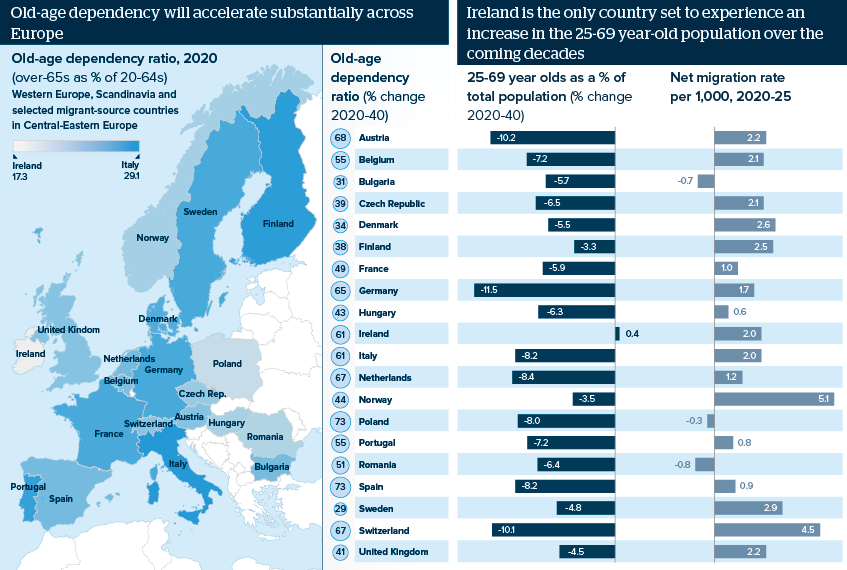Population change will have an uneven impact in Europe
Ageing population dynamics will pose different social, economic and political challenges for European governments
Source: UN World Population Prospects
Outlook
Today roughly 20% of the European population is aged over 65; that is projected to rise to 30% by 2070. The share of people over 80 is expected to double from around 6% to 13%. The shift towards an ageing population will pose significant challenges for labour market performance, healthcare capacity, public spending, immigration policy and political stability.
Many countries will increase the retirement age and pursue policies that encourage more legal migration as a policy response to population changes and labour shortages. The demographic crisis will be most acute in the south and east of Europe, where higher rates of emigration and/or lower rates of immigration will weaken productivity and economic growth.
Impacts
- Ageing populations, in addition to the green and digital transitions, will widen inequality gaps between Eastern and Western Europe.
- Proposals to increase immigration as a solution to labour shortages will be resisted by populist parties.
- More countries may begin to incentivise ‘native’ families to have more children in order to slow down population decline.
- Anti-emigration politics and policies will become a new phenomenon, especially in southern European countries.
